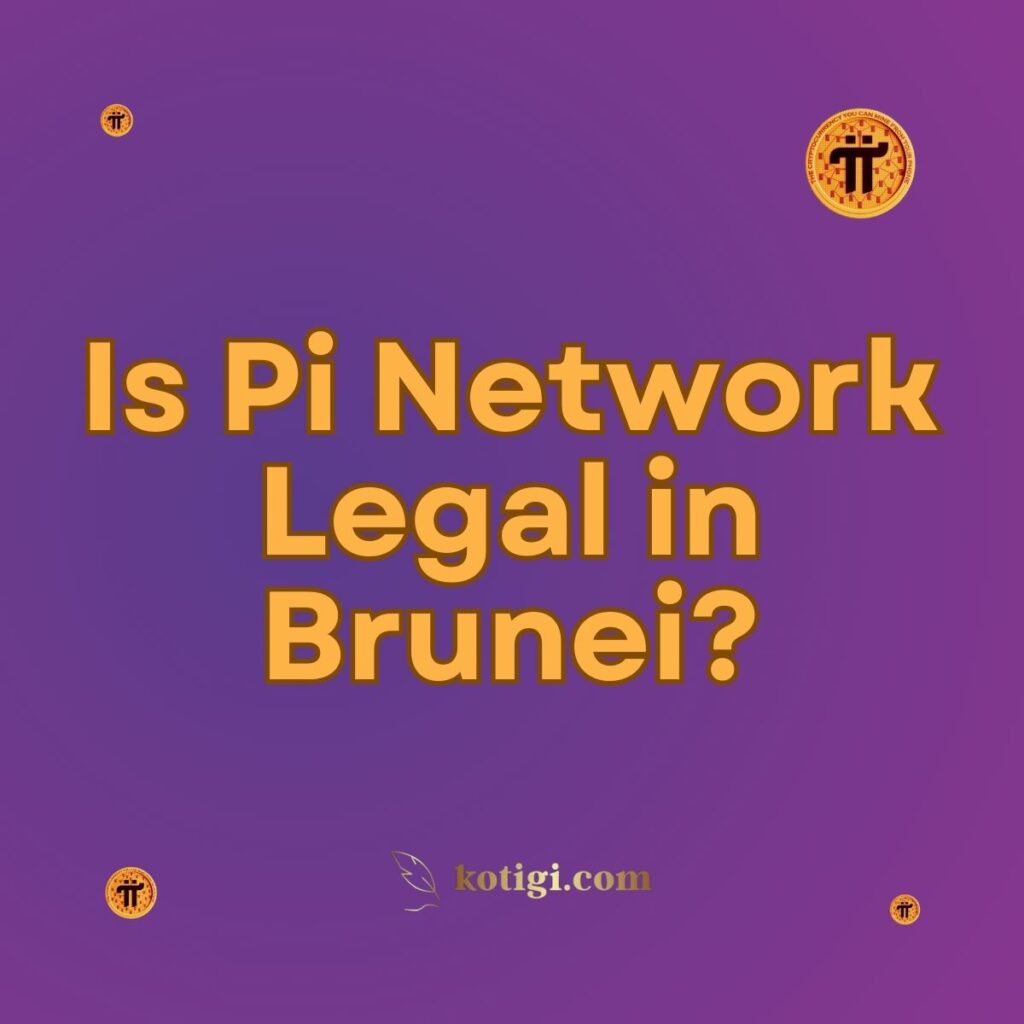
Is Pi Network Legal in Brunei?
Pi Network is currently unregulated in Brunei, as the country has not enacted specific laws regarding mobile-based cryptocurrencies. However, users must consider Brunei’s stringent financial and anti-money laundering regulations when engaging with any digital currency platforms.
Introduction
As the popularity of Pi Network grows globally, questions arise regarding its legal status in various countries, including Brunei. Known for its conservative approach to financial regulations, Brunei has yet to introduce specific guidelines or laws that address mobile-based cryptocurrencies like Pi. While Brunei is not known for embracing cryptocurrencies, the lack of a clear legal stance has left users uncertain about how Pi Network fits within the country’s regulatory framework. This post will explore the current legal situation, the risks, and opportunities for Pi Network users in Brunei, and what the future might hold for digital currencies in the region.
1. Brunei’s Stance on Cryptocurrency
Brunei’s government has generally been cautious in its approach to cryptocurrencies, with no formal regulations directly governing digital assets like Pi Network. The country’s central bank, the Autoriti Monetari Brunei Darussalam (AMBD), has issued warnings about cryptocurrency use, but there has been no outright ban.
1.1 No Official Cryptocurrency Laws
As of now, Brunei has not enacted any specific laws governing cryptocurrencies. This leaves Pi Network in a regulatory gray area, where users are free to engage with the platform without facing legal restrictions, but also without any official recognition or protection.
1.2 AMBD’s Cautionary Statements
The Autoriti Monetari Brunei Darussalam (AMBD) has issued cautionary statements about the use of cryptocurrencies, citing concerns about volatility, consumer protection, and potential risks of fraud. However, these warnings do not equate to a legal ban, allowing Pi Network to operate within this uncertain legal space.
1.3 Brunei’s Conservative Financial System
Brunei’s financial system is tightly controlled, with a strong focus on ensuring compliance with anti-money laundering (AML) and counter-terrorism financing (CTF) regulations. The government’s cautious approach toward cryptocurrencies aligns with its broader financial policies.
2. Is Pi Network Legal in Brunei?
Given the lack of specific cryptocurrency laws in Brunei, Pi Network operates in a legal gray area. There is no legislation explicitly legalizing or banning its use, making it neither fully legal nor illegal.
2.1 Lack of Explicit Regulation
Pi Network has not been subjected to direct regulation in Brunei. While this gives users freedom to mine and use Pi, it also means there are no legal protections in place should the government decide to impose stricter regulations on digital currencies.
2.2 No Prohibition on Pi Network
There is no active prohibition on using Pi Network in Brunei. Users can freely engage with the platform, although they must remain cautious of potential regulatory changes in the future.
3. Financial Regulations and Compliance
Although Pi Network is not currently regulated in Brunei, users must still consider existing financial regulations, especially those related to anti-money laundering (AML) and counter-terrorism financing (CTF).
3.1 Anti-Money Laundering (AML) Regulations
Brunei has stringent AML laws, and any financial platform operating within the country is expected to comply. While Pi Network does not yet involve traditional monetary transactions, its future integration with financial systems may require it to adhere to these regulations.
3.2 Know Your Customer (KYC) Requirements
Brunei’s financial laws emphasize strict Know Your Customer (KYC) practices. Although Pi Network is in its early stages and focuses on mobile mining, it may eventually need to introduce KYC protocols if it seeks wider recognition in the country.
3.3 Tax Implications
At present, there are no tax guidelines specifically addressing cryptocurrencies in Brunei. However, users should be prepared for potential future tax obligations, particularly if they exchange Pi tokens for other currencies or use them for financial transactions.
4. Risks for Pi Network Users in Brunei
While Pi Network’s legal status in Brunei remains undefined, there are risks that users should be aware of, particularly in relation to regulatory uncertainty and potential financial penalties.
4.1 Regulatory Risks
As Brunei has not yet defined a legal framework for cryptocurrencies, there is always the risk that the government could impose new restrictions or regulations. Users should remain informed about potential changes to avoid running afoul of future laws.
4.2 Financial Penalties
Should Brunei introduce new cryptocurrency regulations, users who fail to comply with legal requirements may face financial penalties. It is important for users to monitor the legal landscape closely and adjust their participation in Pi Network accordingly.
4.3 Lack of Legal Protection
Since Pi Network is not officially regulated, users do not benefit from any legal protections in Brunei. This means that if issues arise with the platform, users may not have recourse to legal remedies.
5. Opportunities for Pi Network in Brunei
Despite the regulatory uncertainties, Brunei’s cautious yet open stance toward cryptocurrencies presents potential opportunities for Pi Network to establish a foothold in the country.
5.1 Potential for Future Regulatory Clarity
As digital currencies gain more traction worldwide, Brunei may eventually introduce formal regulations governing cryptocurrencies like Pi. If the country adopts a more favorable stance, it could create opportunities for Pi Network to expand its presence.
5.2 Growing Interest in Blockchain Technology
While Brunei has not fully embraced cryptocurrencies, the global interest in blockchain technology may encourage the government to reconsider its position. Pi Network’s focus on a decentralized ecosystem could align with future technological developments in the country.
5.3 Financial Inclusion
Pi Network’s mobile mining model offers a unique opportunity for financial inclusion in Brunei, particularly for individuals who may not have access to traditional banking services. This could be a significant benefit in a country where banking penetration is not universal.
6. Conclusion
In conclusion, Pi Network operates in a legal gray area in Brunei, with no specific regulations governing its activities. While users are free to engage with the platform, they should remain cautious of potential regulatory changes that could impact the legality of Pi Network in the future. As Brunei continues to monitor the global cryptocurrency landscape, the country may eventually introduce clearer guidelines for digital currencies. Until then, Pi Network users in Brunei should stay informed about legal developments and ensure compliance with existing financial regulations.
Key Takeaways
- Pi Network is not explicitly regulated in Brunei, meaning it operates in a legal grey area.
- Brunei’s government has issued cautionary statements regarding cryptocurrency use, but there is no outright ban.
- Users should be aware of existing financial regulations, including AML and KYC requirements.
- The future of Pi Network in Brunei may depend on the country’s evolving stance on digital currencies.
- Potential risks include regulatory changes that could impose new restrictions on Pi Network usage.





